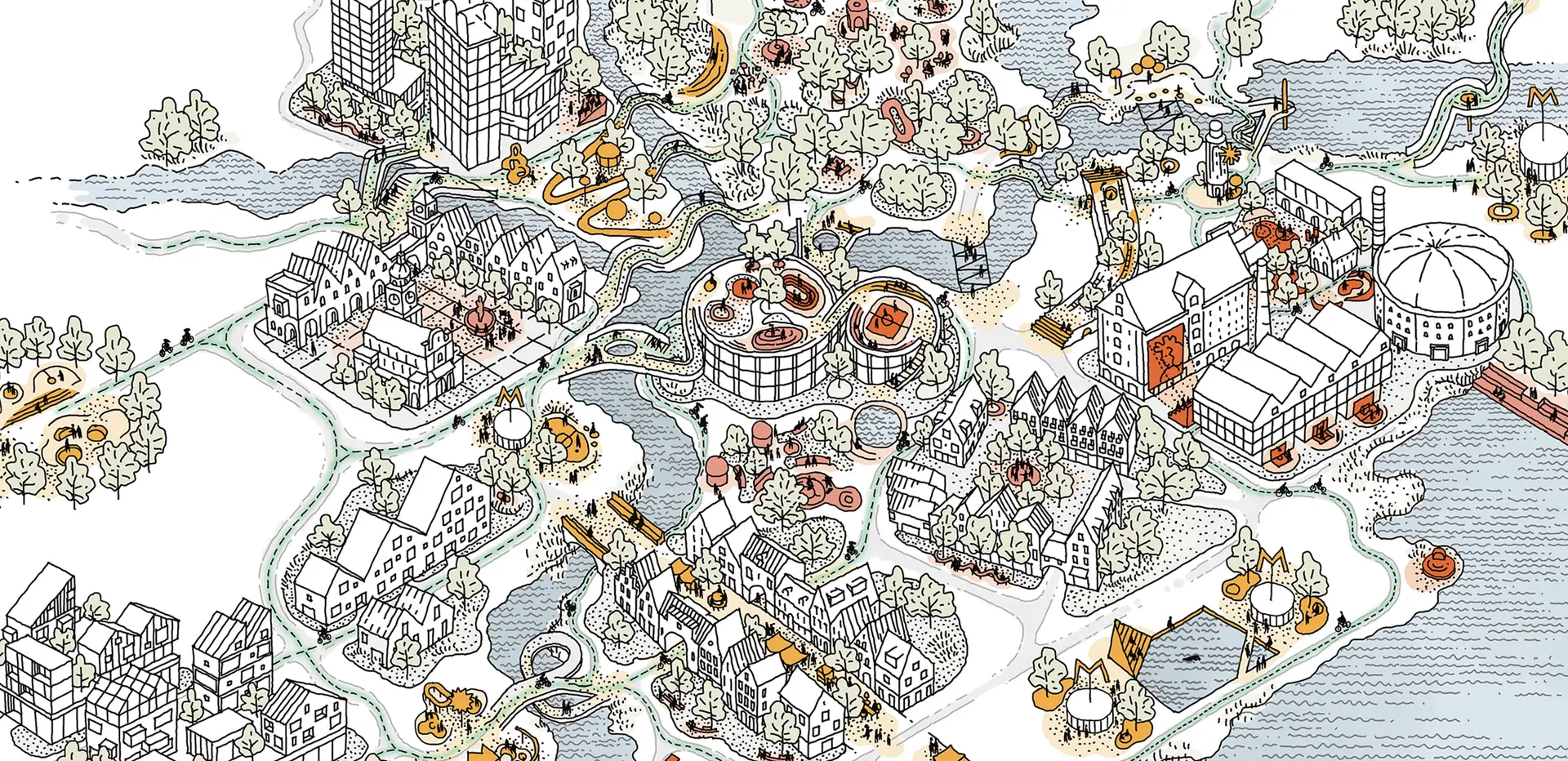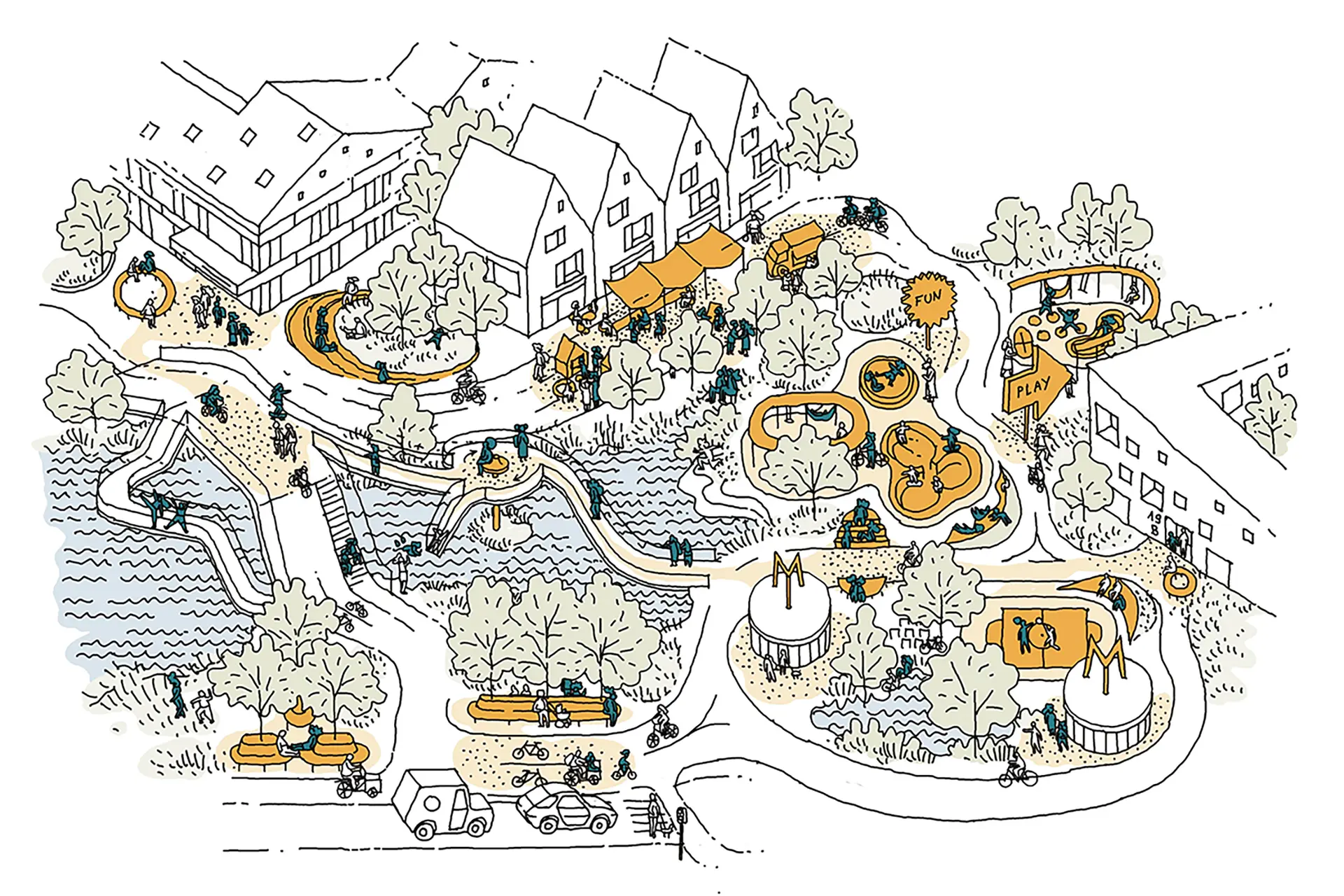Whose voices are heard? Tuning in to the perspectives of teenage girls

By Zoey Kroening
As the mental health of girls and young women is on the decline, it has become clear that this user group has been somewhat forgotten and misunderstood within the fabric of our cities. To best understand this issue, we are giving the microphone to girls and young women to voice their personal experiences in the urban landscape.
Contact

Social Impact and Co-creation Lead
As designers of urban environments that are intended to reflect and cater to all, our research project, Urban Minded, poses the question, “How can the design of urban spaces contribute to the mental health and well-being of teenage girls?”
The research project seeks to challenge and diversify the narratives about young women. Rather than generalizing their needs, attention was turned to their rich and nuanced lived experiences. Using ethnographic research methods, including walk-and-talk interviews, video diaries, and workshops, our team had the privilege of getting familiar with the nuanced lived experiences and perspectives of teenage girls aged 14-16 living in Copenhagen.
"There needs to be room for us in the city!"
The team identified three design drivers that are crucial for girls' experiences in the city: 'TO FLOW', 'TO BE', and 'TO PLAY'. Though presented separately, these feed into and build upon each other in levels of comfort and self-expression 'TO FLOW' focuses on the basic use of the city, 'TO BE' reflects a desire and ability to spend time in urban spaces, and 'TO PLAY' involves being playful and carefree in these areas.
TO FLOW:
“When you’re a kid you’re just following your parents but when you grow up you get to see and know the city more and explore it for yourself. You can always find hidden things or secret places.”
“I don’t really stop and sit too much. There’s just so much movement in the street and I like being part of it instead of just watching it.”
TO BE:
“There needs to be room for us in the city! That’s really important that we can always find at least one space that’s right for us.”
“Sometimes, I just need to be in nature or by the water. It helps clear my mind, if I am stressed or tense.”
“I definitely like city vibes. I like that there are so many people around, and buildings everywhere and you can just see small glimpses of people’s lives and stuff. I’ll do this thing where I look at people and then I imagine stories about their lives.”
TO PLAY:
“We always find something to do. We come up with games ourselves, there doesn’t need to be a basketball hoop or something like that... All is possible, and sometimes we just play hide and seek, it’s fun.”
“I love it when I get a chance to be silly and joke around. It makes me feel like a child again! I think a lot of people really miss that feeling... and not just people my age, also adults. We don’t have to be responsible and mature all the time.”
"When you’re a kid you’re just following your parents but when you grow up you get to see and know the city more and explore it for yourself."

Despite originating in Copenhagen, the project is part of a broader effort to center specific user groups and gain their insights to inform our designs. Urban Minded feeds into a broader conversation surrounding inclusive and intersectional design. The approach of Urban Minded can be applied or adapted to various contexts or settings beyond this specific user group, and it is our intention for it to do so.
Explore our Process and Design Guide downloadable below.
A special thank you to our partners The National Institute of Public Health (Denmark), the University of Southern Denmark, and our supporters the Ramboll Foundation.



